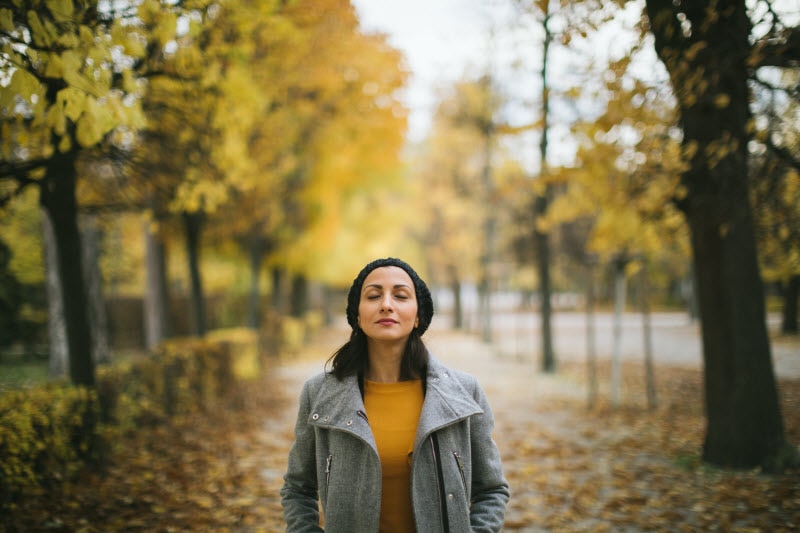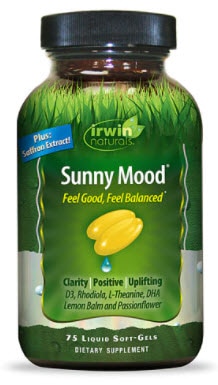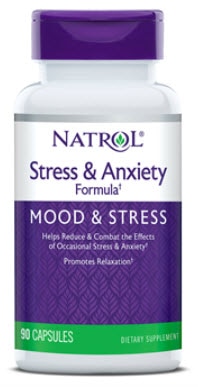Anxiety can happen to us any time of the year. However, you may notice anxiety affecting you more when the season switches from summer to fall. If this sounds familiar to you, you may be experiencing what’s known as autumn anxiety. Fortunately, if you recognize the symptoms, you can take steps that could help autumn anxiety practically fall off your list of concerns.
What is autumn anxiety?
According to Norton Children’s Medical Group, which serves patients in Kentucky and Indiana, autumn anxiety refers to the tendency to suffer from anxiety and low mood in the fall. Autumn lasts from September through December.
“There’s evidence that the return of chillier weather — including shorter days as we edge toward winter — can raise anxiety levels among adults and school-age children alike,” says Talkspace, a digital platform for therapy and other behavioral health services.
Autumn anxiety is similar to seasonal affective disorder (SAD), according to Norton Children’s. But unlike SAD, there often isn’t an obvious external trigger for autumn anxiety. Also, SAD is a condition that can be medically diagnosed, while autumn anxiety is not.
“With the days slowly getting shorter, serotonin levels start dropping,” Norton Children’s psychologist Katy Hopkins says. “Serotonin impacts mood, appetite and sleep, all of which can contribute to feelings of depression and anxiety.”
Other factors that might contribute to autumn anxiety include adjusting to the new school year and anticipating holiday-related stress, according to Norton Children’s.
What are some autumn anxiety symptoms?
Norton Children’s says symptoms of autumn anxiety include:
- Anxiety
- Depression or drop in mood
- Irritability
- Fatigue
- Increased sleepiness
- Lack of interest in favorite activities
How can you deal with autumn anxiety?
Even if you don’t detect symptoms of autumn anxiety, you can do things to avoid it. Here are six ways to ward off or ease autumn anxiety.
1. Spend more time in the sun
One of the most common causes of autumn anxiety includes reduced exposure to sunlight, according to Harmony Bay Wellness, a provider of mental health treatment in New Jersey.
Sunlight helps our bodies produce vitamin D. But with fewer hours of sunlight in the fall, you may be experience vitamin D deficiency. Harmony Bay Wellness says vitamin D deficiency can contribute to anxiety and depression.
“Taking vitamin D supplements and spending time outside during daylight hours can be an excellent way to combat a vitamin D deficiency,” according to Harmony Bay Wellness.
2. Get exercise
Engaging in at least 30 minutes of exercise or other physical activity each day can lift your mood.
“Exercise is … considered vital for maintaining mental fitness, and it can reduce stress. Studies show that it is very effective at reducing fatigue, improving alertness and concentration, and at enhancing overall cognitive function. This can be especially helpful when stress has depleted your energy or ability to concentrate,” according to the Anxiety & Depression Association of America.
3. Seek out enjoyable activities
What do you enjoy about fall? Strolling through a pumpkin patch? Creating Halloween costumes? Soaking up the fall colors? Whatever your answer, focus on those activities that bring you pleasure. You might even try a brand-new activity, like fostering a dog or spending a weekend at a mountain cabin.
4. Talking with a therapist
If you feel down or feel like you’re slipping into autumn anxiety, consider chatting with a therapist, psychologist or psychiatrist. This therapy may help you pinpoint some coping mechanisms and help you climb out of your slump.
5. Watch out for allergies
Fall allergies may contribute to anxiety or depression. If you’re suffering from allergies, explore prescription, over-the-counter or natural remedies.
6. Get adequate sleep
A proper amount of shut-eye can help relieve anxiety. As GoodRx Health explains, sleep is vital to physical and mental health.
“Besides helping to improve your anxiety, a regular good night’s sleep can make you feel more alert and refreshed, and help you function well in everyday life,” GoodRx Health says.



